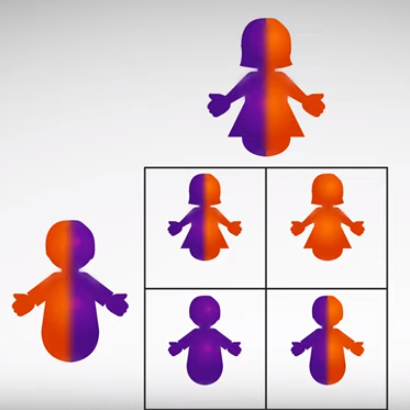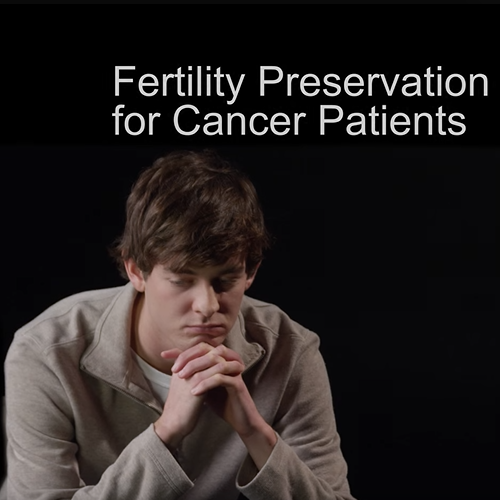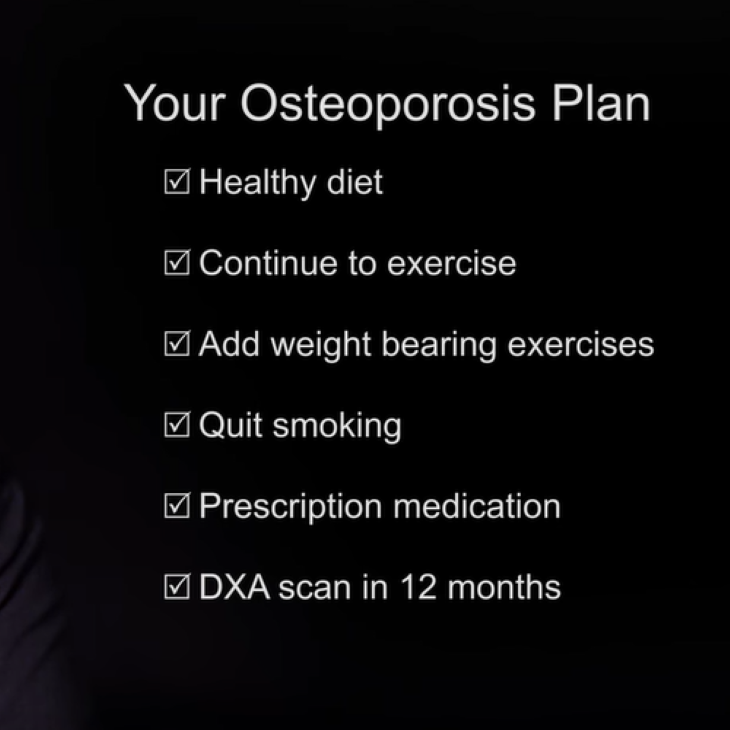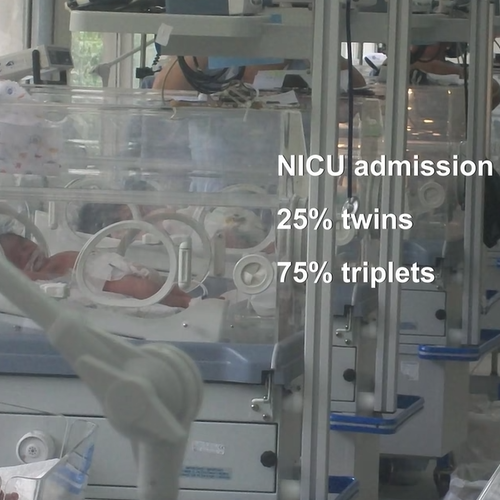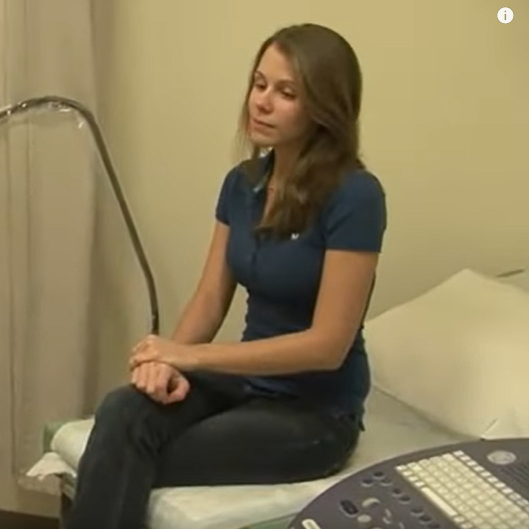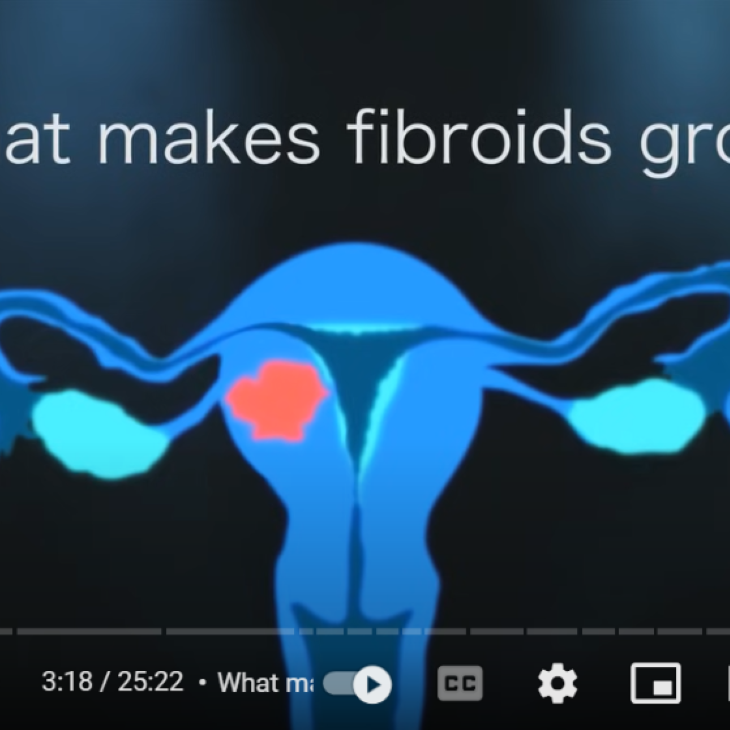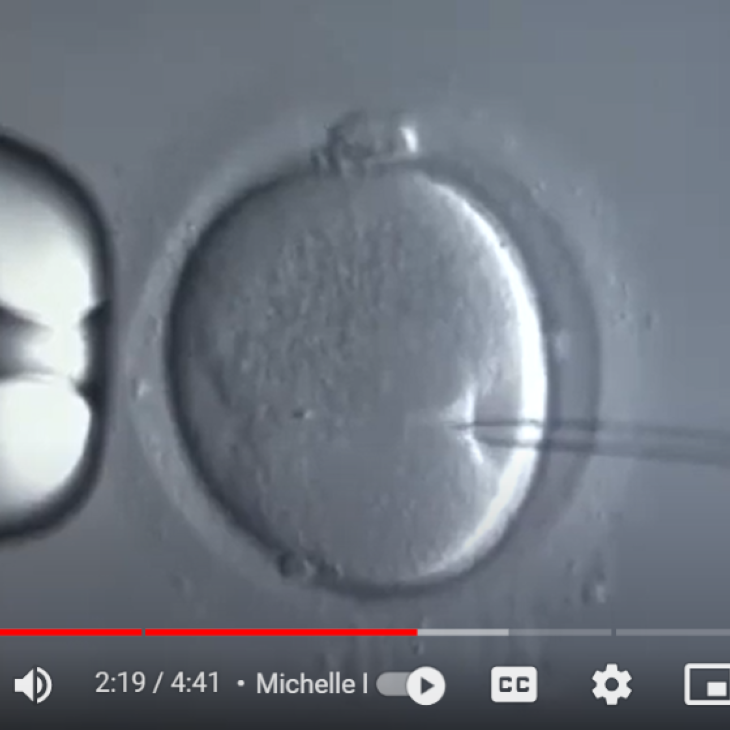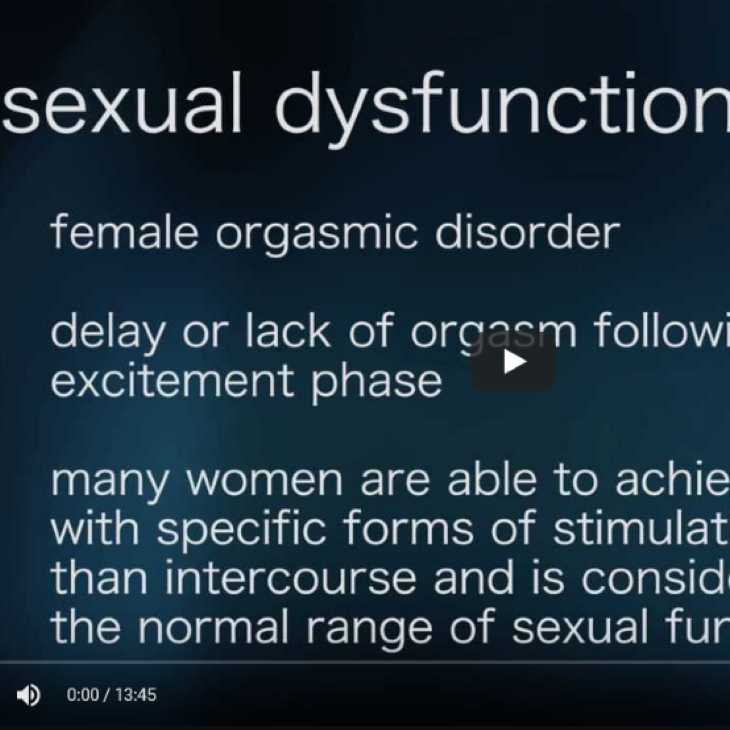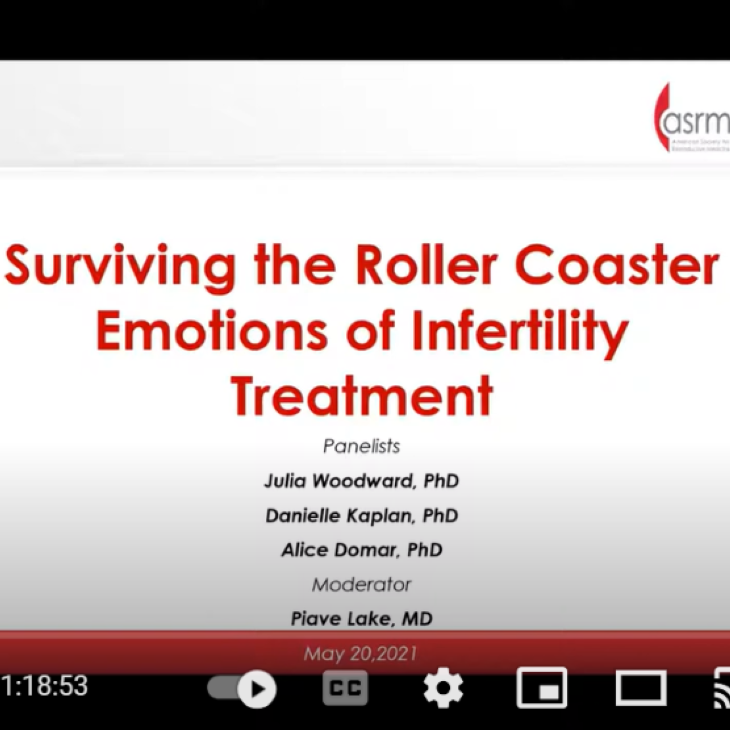
Stress and Infertility
Medical procedures, cost, outcome uncertainty, and unwanted or unhelpful advice from friends and family are stressors associated with infertility treatment.
Transcript
Medical procedures, cost, outcome uncertainty, and unwanted or unhelpful advice from friends and family are stressors associated with infertility treatment.
Slide one:
Stress and infertility are frequently linked. Many events can be the cause of stress. The pressure of bills, starting a new job, or caring for a sick relative are all examples of negative or distress. Getting married, moving to a new home or winning the lottery are all examples of good stress or eustress. Infertility is frequently seen in the distress category. Medical procedures, cost, uncertainty about the outcome and unwanted or unhelpful advice from friends and relatives are all stressors associated with infertility and its treatment.
Because stress causes an automatic body response that includes a flood of hormones that elevate heart rate, increase blood pressure and boost energy in order to prepare the body to deal with the problem, chronic stress can have an impact on health. Fatigue, difficulty with concentration, and irritability are psychological symptoms of chronic stress. And the body, if it is susceptible already, can experience problems such as headache, increased wear-and-tear and other real physical symptoms.
Because conception under the best of circumstances is dependent on a unique blend of hormonal components, stress can disturb the necessary balance. While we don’t know with certainty that stress causes infertility there is a body of research that demonstrates that couples who report feeling good become pregnant at a higher rate than couples who report being tense and anxious. Similarly, women with higher levels of stress have lower success rates with IVF than those who have low levels of stress.
Slide two:
People respond to stress in a variety of different ways. These coping mechanisms can be particular to the person. In certain groups of people some coping mechanisms appear more frequently than others. Since most people in infertility treatment are pursuing a very important task, the creation of a family, a variety of factors can create stress. The aggressive pursuit of treatment is not unusual when significant impediments to success are present. For example, older patients who have a lower probability of conceiving because of lower egg reserves, may reject the advice of one specialist to use donor eggs and look for a specialist who promises that their age is not an impediment. This can delay the more promising treatment and increase stress levels.
Another impact of the stress of infertility treatment can be the withdrawal from sources of support. Feelings of guilt, shame, and regret can be stressful, leaving a person sad and avoiding others who could offer support and consolation.
Stress can also interfere with thoughtful decision-making. Frequently the many choices an individual or couple faces can be confusing. When a person is feeling stressed their ability to think clearly and make rational decisions, taking into account many factors can be compromised.
All of these and others can result from the stress produced by infertility and its treatment.
Slide three:
Fortunately, mental health professionals working in the field of reproductive medicine have recognized the impact of stress on infertility and its treatment. Along with others, they have developed tools for individuals experiencing stress. And we know that the benefits of reducing stress on infertility treatment can be wide ranging. At the minimum, developing good coping strategies to manage stress can help you feel more in control and improve your overall well-being.
Stress reduction can allow patients to more thoughtfully research, explore and consider the options available to them for the treatment of their infertility and the development of family building strategies. By reducing stress it can be easier to evaluate the pros and cons of a particular course of treatment and make decisions that are in your best interest.
Slide four:
It would be unreasonable to think that fertility treatment can be stress free however; finding ways to minimize stress while pursuing treatment can be helpful. The following tools have been demonstrated stress reducer’s. Aerobic exercise, walking, yoga, and relaxation training all have an ability to improve not only physical health but psychological well-being as well. Activities that help produce relaxed states such as guided imagery journaling and mind-body groups are also well known stress reducer’s. Finally, self-help books, support groups aimed specifically at fertility treatment patients and psychotherapy can all improve psychological well-being, thereby reducing stress. It is important to note that many of these activities can be done in moderation and have beneficial impact.
Slide five:
A support network of friends and family can be important. At the same time these people may not know the best way to be supportive. In fact, their attempts to support you may be stress inducing. We know that individuals who are told to “just relax” and they will get pregnant experience a great deal of stress. In fact, telling a loved one to “be less stressed” may make them feel as though they are causing their own infertility.
Sometimes friends and family need to be educated. If you are comfortable with the discussion you can advise your family and friends to ask how you were doing and allow you to talk. For many people having an accepting listener is greatly appreciated and helps reduce stress. For these people knowing that the best time to offer advice is when it is requested can be extremely helpful. Even though infertility and its treatment is more regularly reported on in popular media than ever before, many people have neither experienced it nor know what to say to friends who have. It is possible to help them so they can help you.
Slide six:
So to summarize, we know that infertility can cause stress that leads to anxiety and depression. Research has demonstrated this time and again. We also know that stress can make conception more difficult for men and women. While the exact mechanism of how this works is not totally understood, it is clear that there is a relationship between them. Finally, it has been demonstrated time and again that stress reduction techniques when employed on a regular basis can improve conception rates.
Slide seven:
Here are three resources that you can access directly from your computer or Internet connected mobile device. ASRM has a short video on coping with infertility; please be advised that it is several years old and some of the cost figures have changed. There are two national support organizations aimed specifically at fertility patients and those seeking to build families. Both of them have extensive libraries of materials that are patient friendly and available at no charge. Path2Parenthood and Resolve provide materials developed by experts in the field. All of these materials are available at no charge.
All of these are nonprofit organizations.
Stress
Infertility
Psychological Counseling
Find a Health Professional




